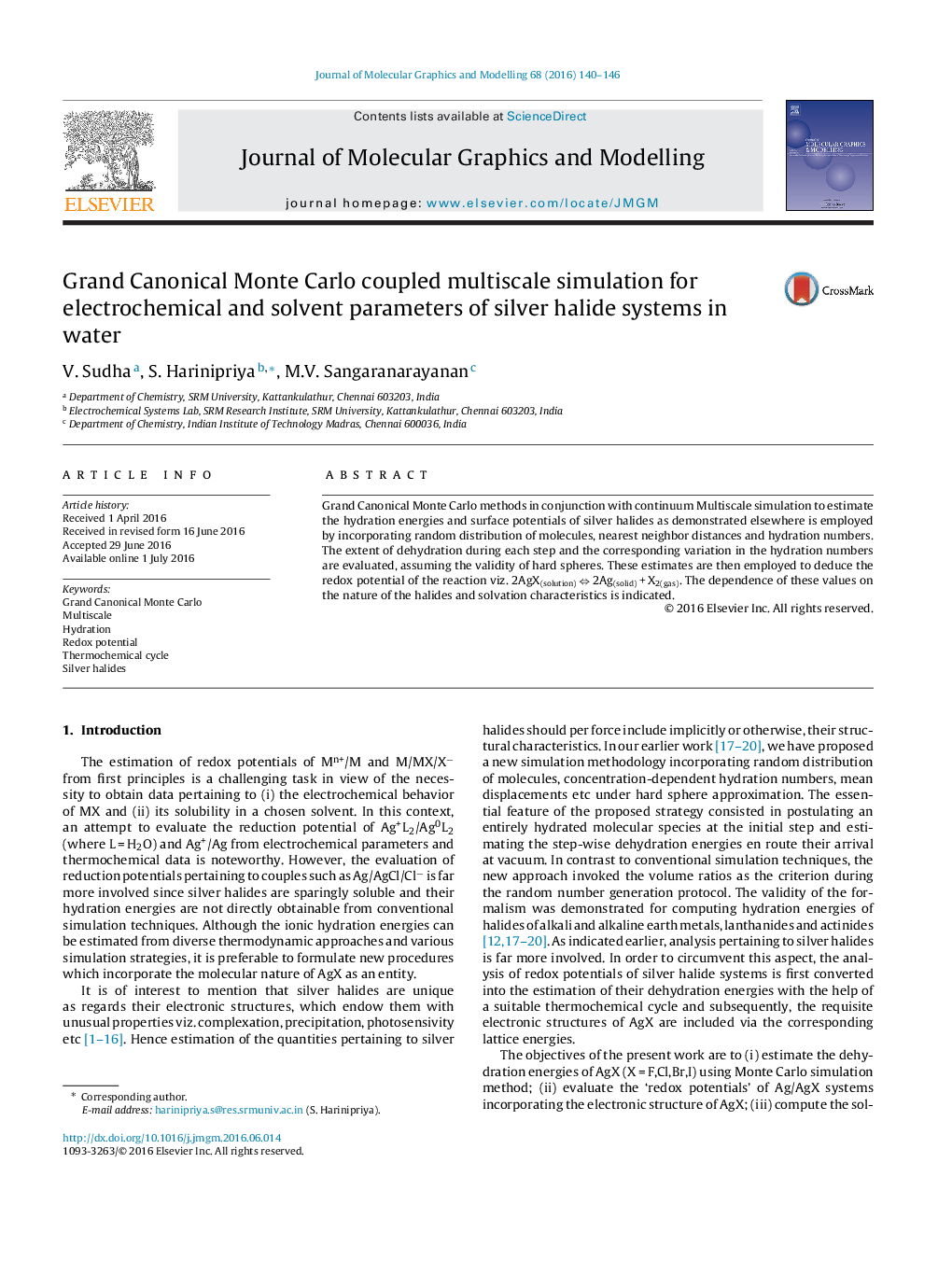| Article ID | Journal | Published Year | Pages | File Type |
|---|---|---|---|---|
| 443227 | Journal of Molecular Graphics and Modelling | 2016 | 7 Pages |
•Grand Canonical Monte Carlo methods in conjunction with continuum Multiscale simulation to estimate the hydration energies and surface potentials of silver halides as demonstrated elsewhere is employed by incorporating random distribution of molecules, nearest neighbor distances and hydration numbers.•The extent of dehydration during each step and the corresponding variation in the hydration numbers are evaluated, assuming the validity of hard spheres.•These estimates are then employed to deduce the redox potential of the reaction viz. 2AgX(solution) ⇔ 2Ag(solid) + X2(gas).•The dependence of these values on the nature of the halides and solvation characteristics is indicated.
Grand Canonical Monte Carlo methods in conjunction with continuum Multiscale simulation to estimate the hydration energies and surface potentials of silver halides as demonstrated elsewhere is employed by incorporating random distribution of molecules, nearest neighbor distances and hydration numbers. The extent of dehydration during each step and the corresponding variation in the hydration numbers are evaluated, assuming the validity of hard spheres. These estimates are then employed to deduce the redox potential of the reaction viz. 2AgX(solution) ⇔ 2Ag(solid) + X2(gas). The dependence of these values on the nature of the halides and solvation characteristics is indicated.
Graphical abstractFigure optionsDownload full-size imageDownload high-quality image (125 K)Download as PowerPoint slide
